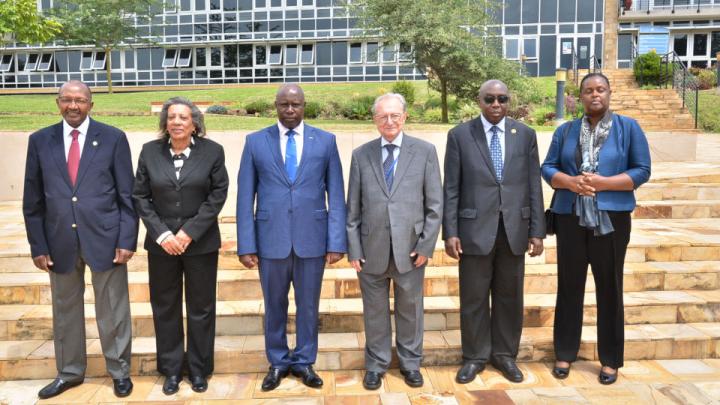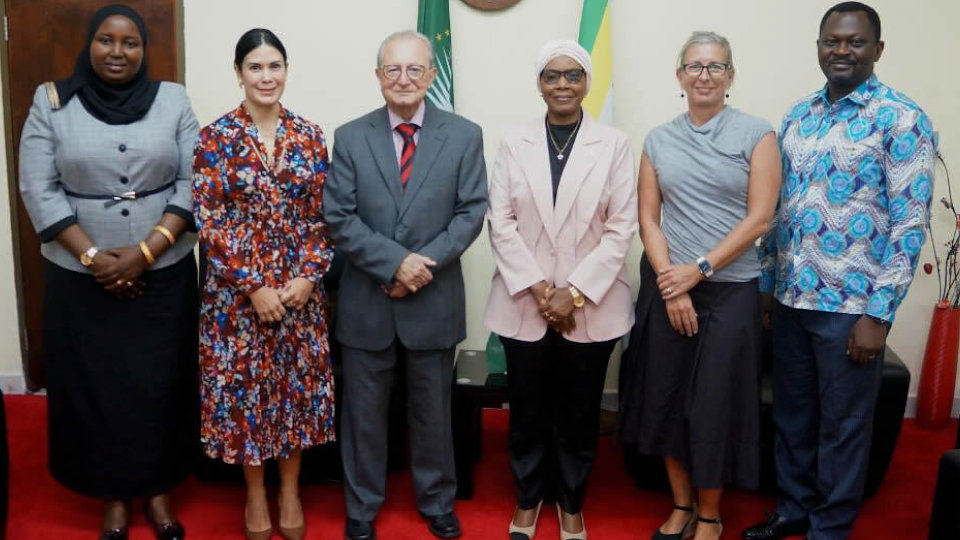Mechanism President meets with Judges of the East African Court of Justice and the African Court on Human and Peoples’ Rights

Today, the President of the International Residual Mechanism for Criminal Tribunals (Mechanism), Judge Carmel Agius, received a delegation from the East African Court of Justice (EACJ) headed by its President, the Hon. Justice Nestor Kayobera. President Kayobera was joined by the Vice President of the EACJ, the Hon. Justice Geoffrey Kiryabwire, as well as the Hon. Justice Yohane Masara, the Hon. Lady Justice Sauda Mjasiri, the Hon. Lady Justice Anita Mugeni, and the Hon. Justice Kathurima M'Inoti. The EACJ Deputy Registrar, Ms. Christine Mutimura, was also in attendance, together with staff members of the EACJ.
During this high-level meeting, President Agius introduced the visiting Judges to the work of the Mechanism, focusing on its pending judicial activity and discussed areas of possible future collaboration. The Judges were also briefed by representatives of the Mechanism’s Registry on other areas of the Mechanism’s work and had the opportunity of touring the courtroom, library and archives section and signing the visitor’s book.
Earlier this week, on 10 May 2022, President Agius visited the premises of the African Court on Human and Peoples’ Rights (African Court), where he met with President of the African Court, the Hon. Lady Justice Imani Daud Aboud, as well Registrar Dr. Robert Eno. The Presidents had a fruitful discussion about the current activities and priorities of both courts, and other matters of mutual interest.
